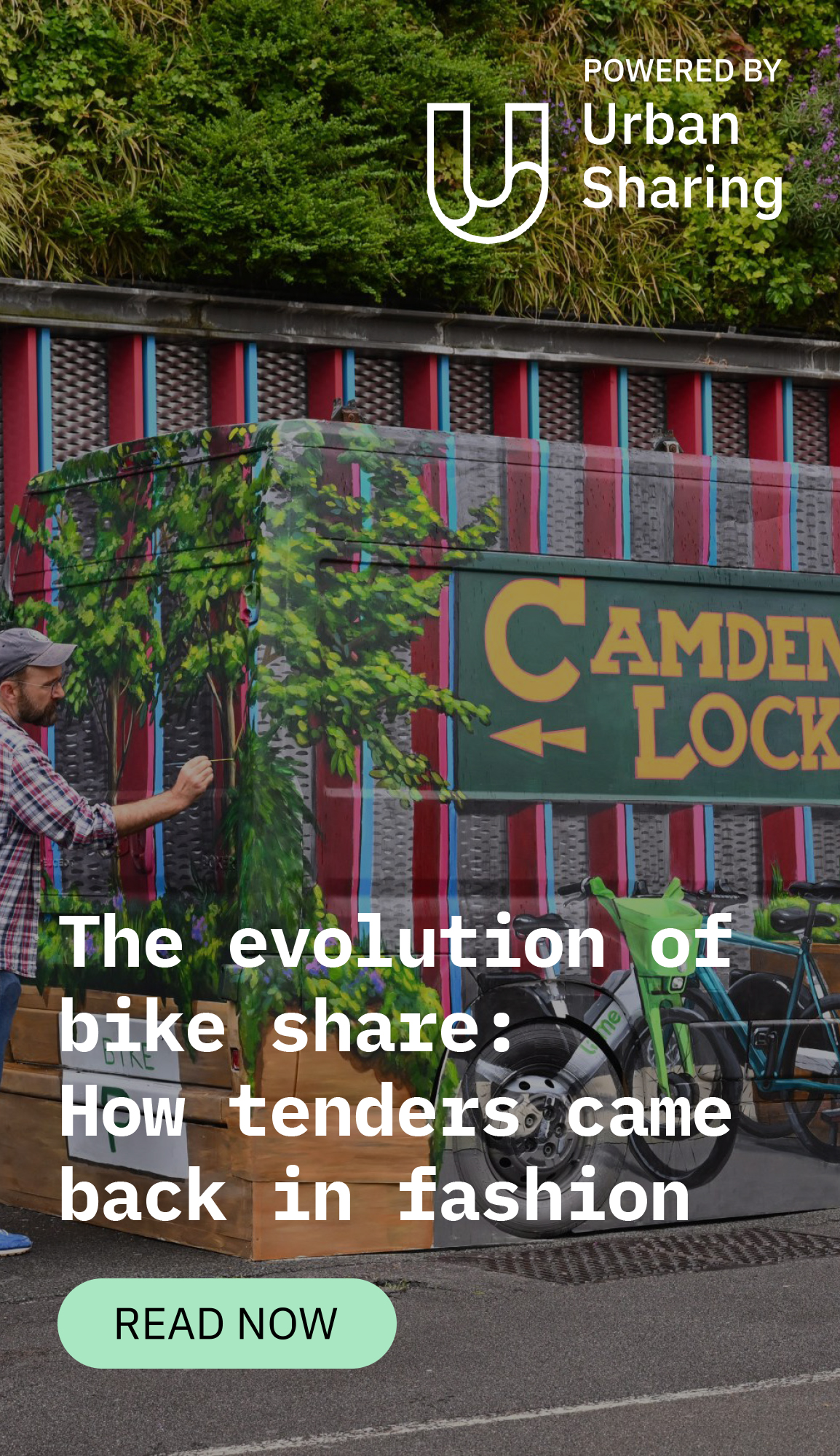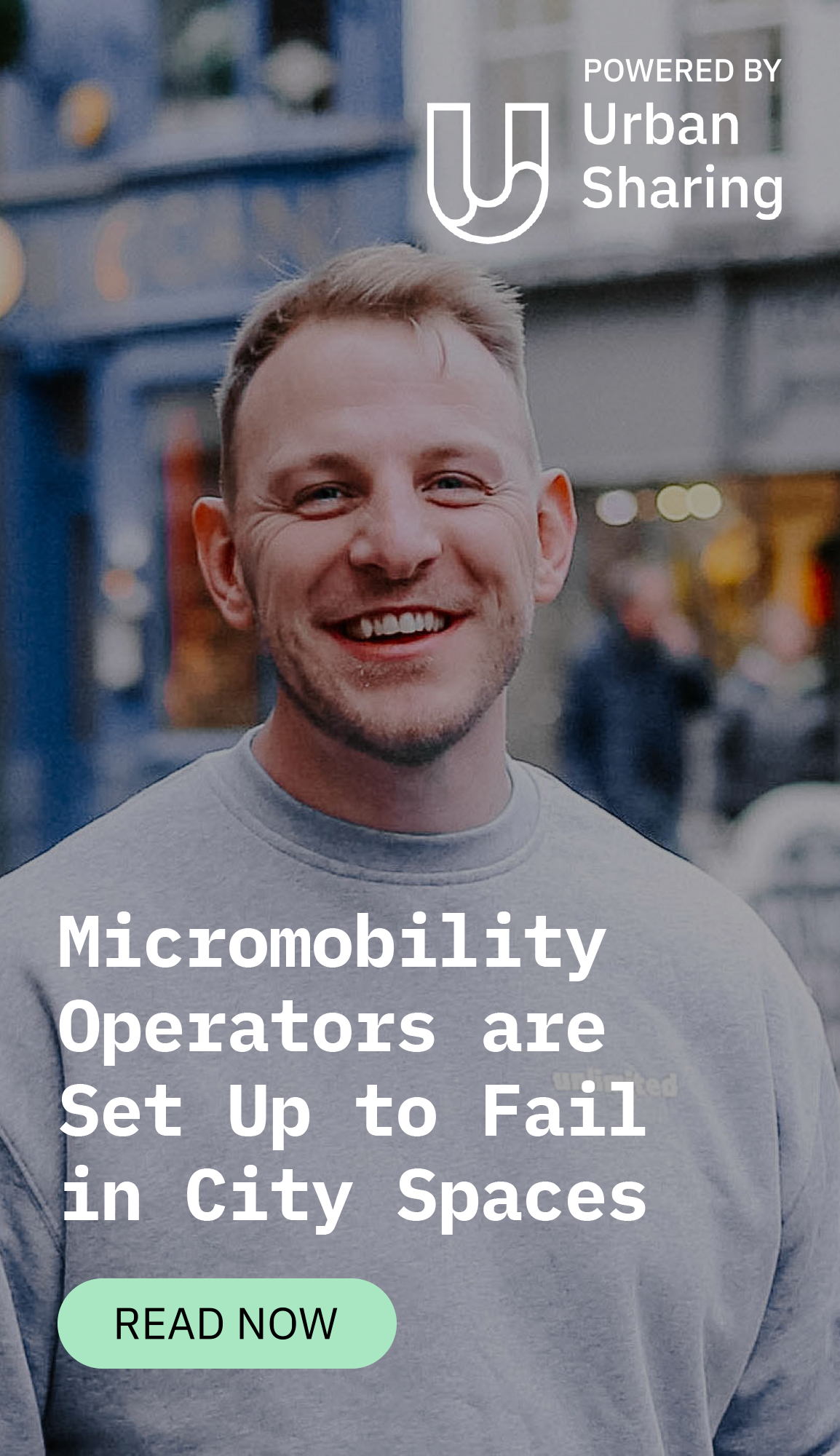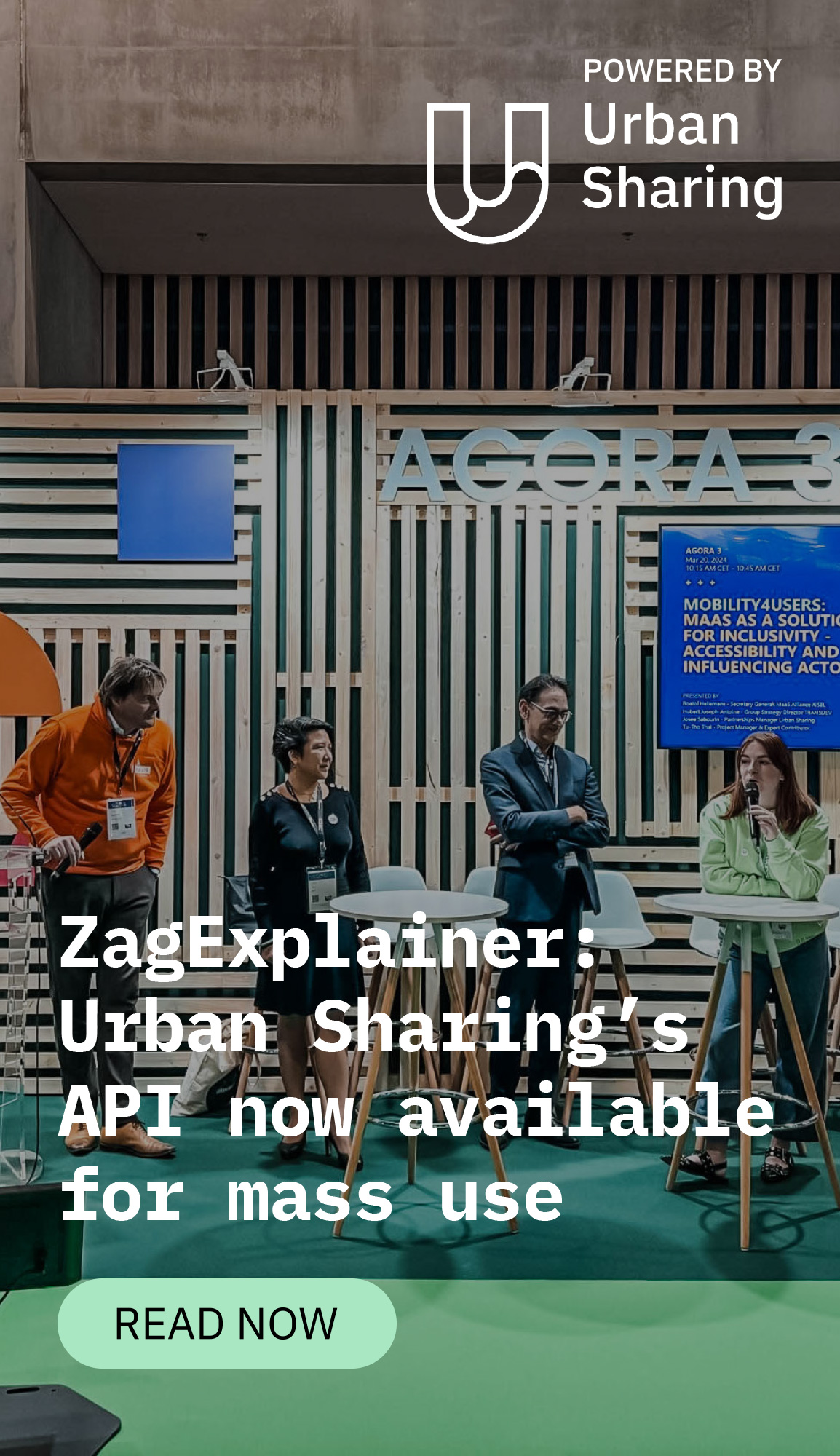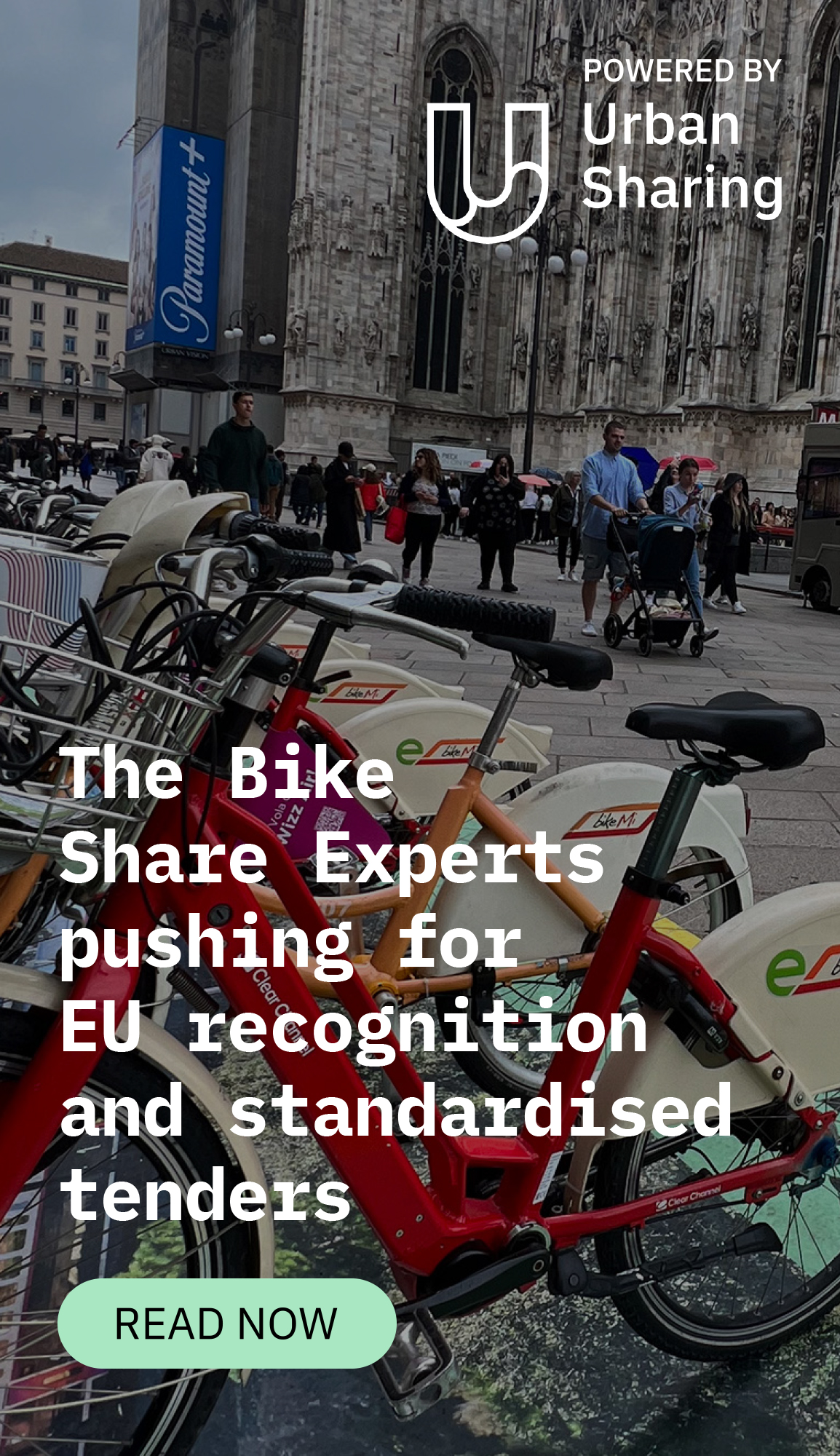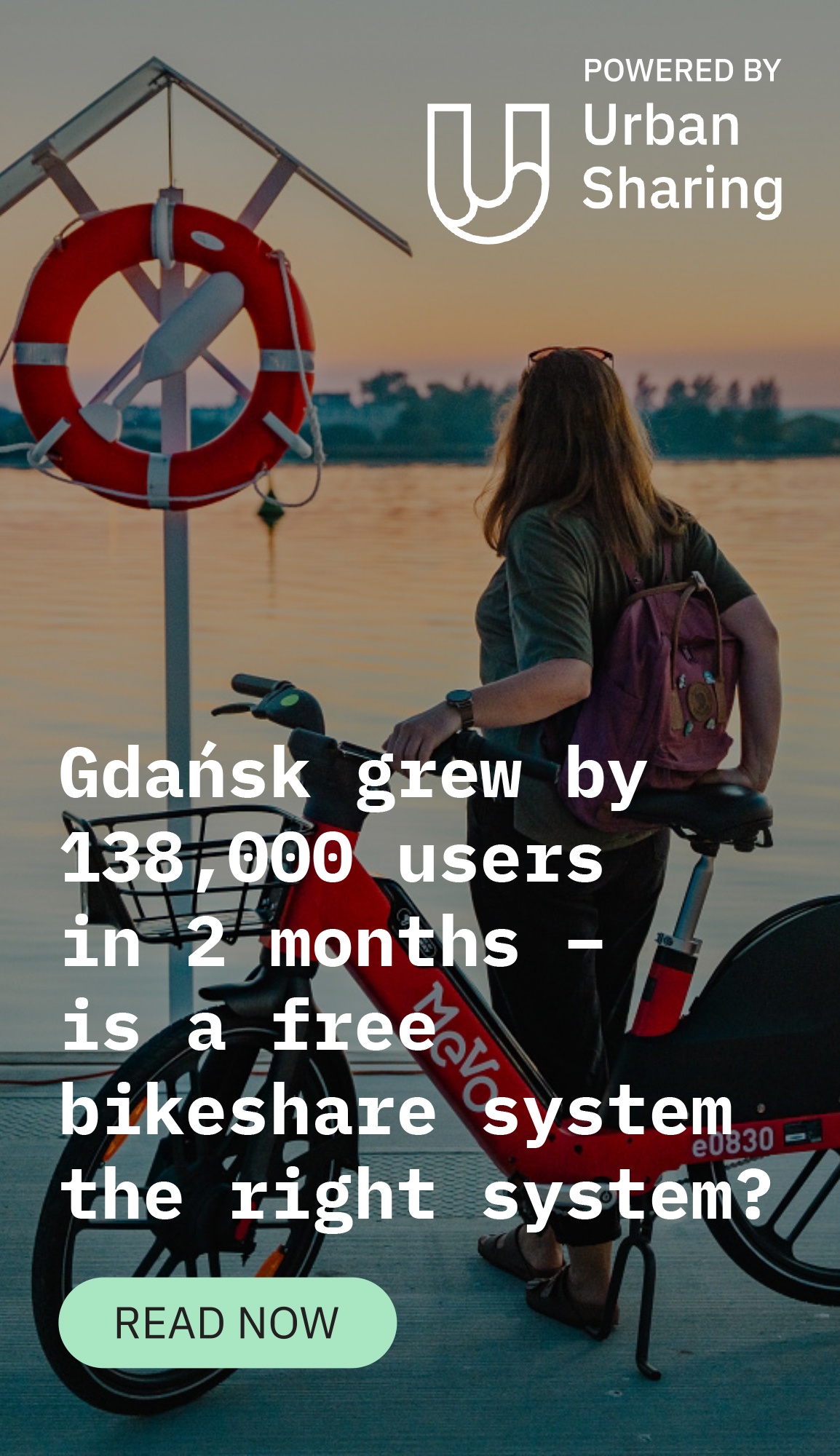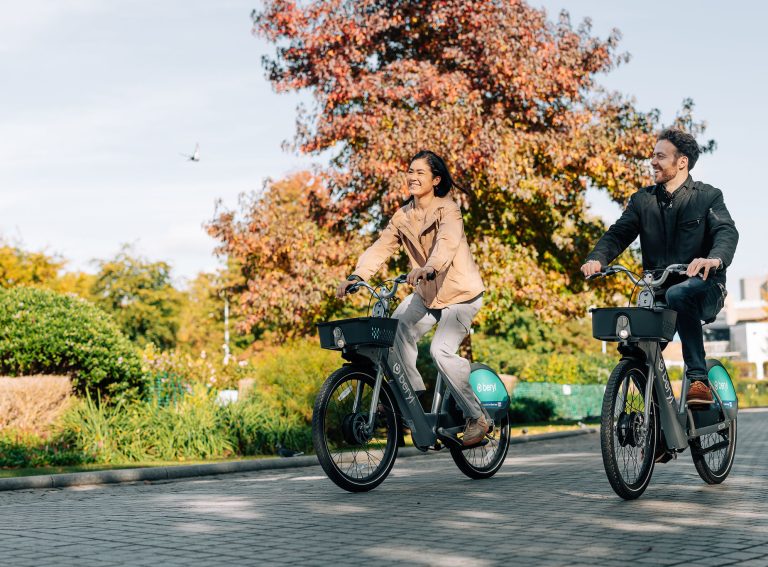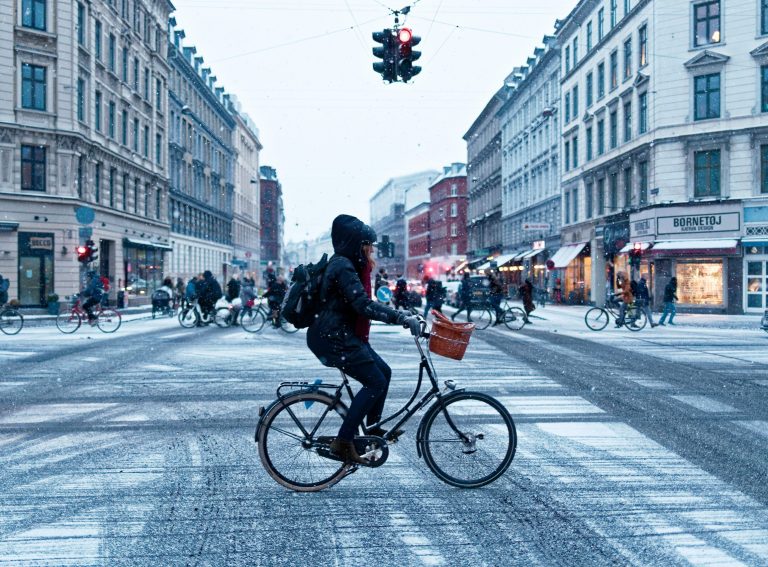Author: Matthew Pencharz, Voi’s Head of Policy for UK, Ireland & the Netherlands
When the UK government launched its Net Zero Strategy: Build Back Greener in October 2021, Prime Minister Boris Johnson said that: “the United Kingdom is not afraid to lead the charge towards global net-zero at COP26, because history has never been made by those who sit at the back of the class hoping not to be called on.” At Voi, since launching in the UK 18 months ago, and now the leading micromobility provider in the UK, we have provided over nine million carbon neutral journeys and saved an estimated 2,000 tonnes of CO2. We didn’t wait for any ‘calling’. We confidently scooted our way to the front of the class in the secure knowledge that micromobility is a mover and sustainable shaker when it comes to achieving net-zero.
Micro doesn’t mean we are small players
The term ‘micromobility’ risks working against our rapidly growing transport sector, seen by some as diminutive, suggesting we are a minor player or microscopic in our impact potential. The prefix ‘micro’ does of course refer to the size of vehicles in the sector, which are lightweight compared with heavyweight, traditional forms of transport. The impact and almost overnight transformation of how people are navigating their towns and cities, however, thanks to micromobility options, has been seeing some macroscale modal shifts.
Given that shared e-scooter schemes are still on trial in the UK, our towns and cities have seen a significant change in the way people are choosing to travel. From Northampton to Southampton, Bristol to Brum, Voi’s e-scooter and e-bike riders have replaced 3.7 million short car journeys in 17 towns and cities since we first launched in September 2020.
A vote for Voi is a green one
This modal shift has been enabled by councils and local authorities that are not only able to see that shared micromobility is contributing towards their achieving net-zero targets, but also because they are recognising the growing demand from their local communities for accessible, inclusive and sustainable modes of transport. Our research with riders does show that many people support the notion of building back greener, but what they also aspire to is convenient and cheap transport that fights congestion and pollution. They may or may not vote Green at the local elections in May, but for now, they are most definitely voting Voi.
The transport narrative needs to amp up
However, in spite of the fact that modal shift is evident, the transport narrative can still sometimes get stuck in neutral. It is moving forward, for sure, but it also needs to amp up a little by seeing the bigger picture beyond simply swapping all internal combustion engine (ICEs) vehicles for battery electric vehicles (BEVs).
Indeed, the UK government’s Net-Zero Strategy features BEVs disproportionately as a means to making green tech “the global norm”. In the Prime Minister’s foreword to the Strategy report, he says: “In 2050, we will still be driving cars, flying planes and heating our homes, but our cars will be electric gliding silently around our cities, our planes will be zero emission allowing us to fly guilt-free, and our homes will be heated by cheap reliable power drawn from the winds of the North Sea.”
This statement also glides over the fact that buying or even insuring a car is inaccessible for many people. The latest data from the Department for Transport (DfT) shows that 19% of households don’t have access to a car or van. Our riders tell us that, across all our UK towns and cities, 39% of Voi e-scooter trips would otherwise have been taken by a car. There is also a growing number of riders combining micromobility with public transport, over 17% in the UK and 47% across the rest of Europe where e-scooters have been available for longer.
Working with not against public transport
This evidence of micromobility segueing sustainably with public transport also highlights the importance of multimodality in building back greener. And, on this subject, we are most definitely not alone at the front of the class. In fact, far from it as we work alongside and learn from many public transport providers. Voi is engaging with city partners to explore how our service can help to drive multimodality and provide a feeder service, for example, to suburban railway stations and mobility hubs, and integration into regional ticketing systems.
Shared micromobility vehicles are starting to provide that all important link in the low carbon chain. This was confirmed by the DfT’s Future of Transport Regulatory Review, as long ago as 2020, when it rightly predicted that “micromobility was seen as most suitable for short-distance journeys of 1-5 miles…” and “makes public transport available to more people who would have to walk too far to local stations.”
Growing public transport integrations
We are seeing this linkage with public transport grow in many of our towns and cities. In the UK, we have integrated our service with Moovit, Citymapper, Zipabout (Rail Delivery Group) and, more recently, FREE NOW. These links demonstrate how micromobility is reinforcing its position as a popular first and last-mile solution and, therefore, driving passenger growth across the public transport network. In Stuttgart, for example, a recent pilot initiative showed that synergies between shared e-scooters and public transport led to a 35% increase in public transport usage.
Voi is in good company at the top of the class
Voi’s position at the front of the class continues to be recognised in many ways outside the UK. We have just been appointed a member of the Multimodal Passenger Mobility Forum (MPMF), founded by the European Commission’s Directorate-General for Mobility and Transport. This Forum has 100 members from public and private transport sectors. It was founded by the EU to facilitate sustainable multimodal transport across the EU, thus supporting a necessary scale up of micromobility in order to achieve net-zero.
Similarly, we were the first micromobility provider invited to join the Combined Mobility Committee at the International Association of Public Transport (UITP) in November 2021. UITP is a worldwide network of public transport stakeholders and all sustainable transport modes. Working in close collaboration with public transport providers is not only a key pillar of sustainability for us at Voi, it is also one of the keys to the city that we envision for the future.

